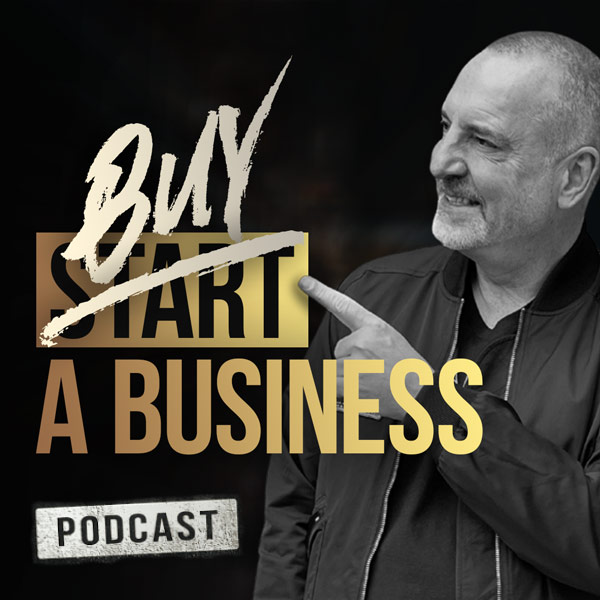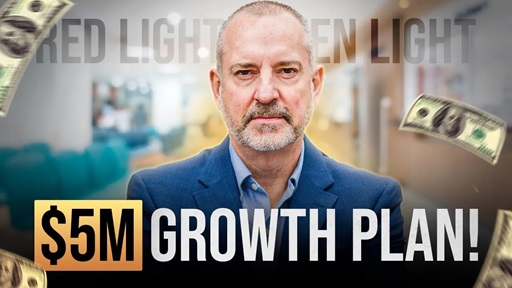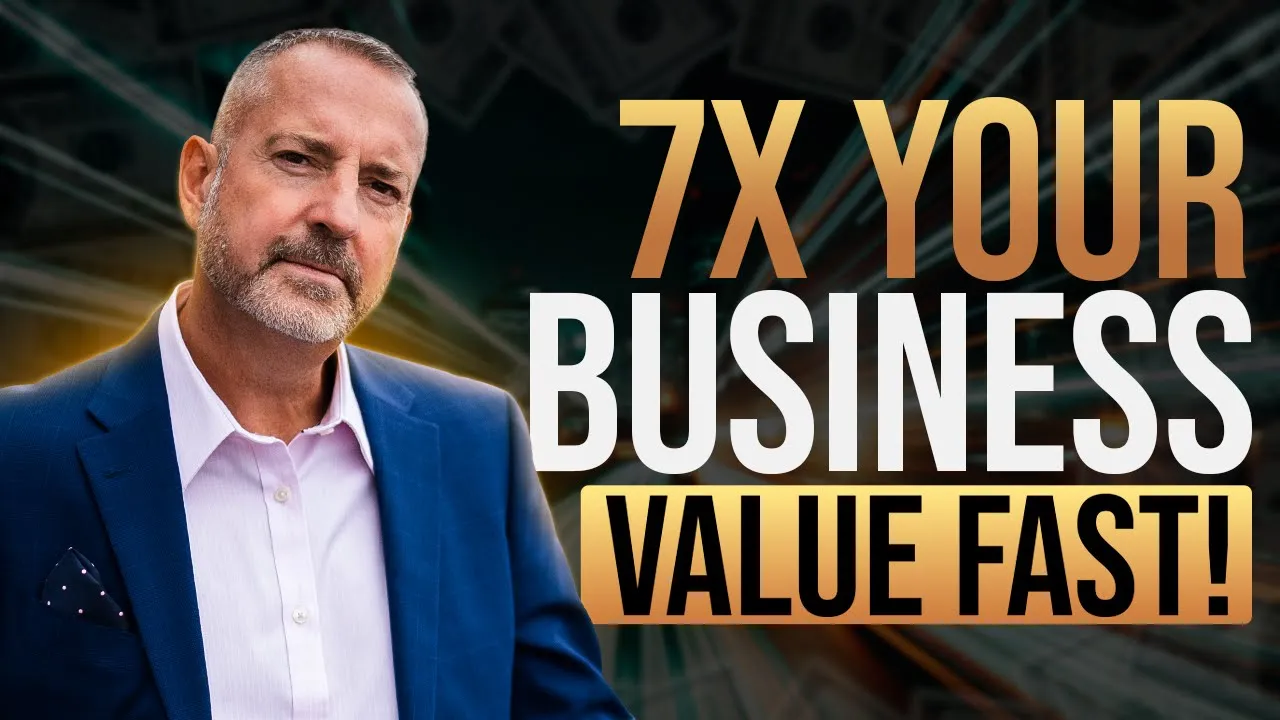The Entrepreneur’s Guide: Why Buy a Business? Pt 3
The Entrepreneur’s Guide: Why Buy a Business? Pt 3
Carl Allen dives deeper into the intricacies of structuring deals when purchasing a business. He starts by explaining the typical components of a million-dollar deal, which might include a combination of debt inheritance, closing payments, and seller financing. Allen highlights the changing landscape of SBA deals, emphasizing that non-bank SBA lenders now allow for 100% seller-financed transactions, significantly reducing upfront cash requirements.
Next, Allen introduces the concept of annuity deals, comparing them to leasing a car. These deals are beneficial because they allow for quicker transactions and offer favorable tax advantages for the seller. He also explores the differences between bolt-on and tuck-in acquisitions, illustrating how these methods can accelerate growth and increase cross-selling opportunities between complementary businesses, ultimately enhancing profitability.
Allen continues by discussing the strategy of roll-up acquisitions, where small businesses are consolidated to create a larger entity that attracts higher-value buyers. This technique, he notes, is frequently used by major corporations like Amazon and Microsoft to drive growth through acquisitions.
Mergers and joint ventures (JVs) are also covered, with Allen providing insights into how combining businesses or partnering with others can create value. He introduces the idea of a “paper merger,” where a dealmaker can facilitate growth by merging two businesses, even without personal capital investment, leveraging synergies to maximize profits.
Finally, Allen touches on distressed deals, franchises, and wholesaling businesses, offering advice on when to pursue or avoid these opportunities. He concludes by stressing the importance of choosing scalable business models over franchises due to their territorial constraints, despite the lower risk profile franchises often provide.
Full Transcript:
So if you do a million dollar deal, let’s say it’s got four hundred thousand dollars of profit. I said before businesses are worth a multiple of that profit. So let’s say that’s a two and a half times multiple.
Four hundred thousand dollars in profit, million dollar deal. That deal might comprise of, say, dollars two hundred thousand of existing debt that you’re gonna inherit, dollars four hundred thousand as a closing payment. We’ll show you where you can get all that money. And then four hundred thousand dollars through seller financing future payments to the seller.
SBA deals. The SBA rules have recently changed.
SBA always used to want you to put five percent to ten percent of the money down, but not anymore. You can use non bank SBA lenders, and you can do one hundred percent seller financing deals. And the federal government guarantees the majority of that capital. And what’s great about an SBA deal is because you’re putting a lot of the money down at the closing table, you can pay a lot less for the business, which is really, really cool.
Annuity deals I’ll start buying a business slightly with a lease of car, just paying for it over an extended period of time. Very, very quick to do those deals. You can do those deals in a day, maximum two weeks. Seller can get more money because you’re spreading it out. They’ll pay less tax.
Lighter due diligence, a lot less stressful. Sellers are loving those deals. There’s some people in the room that that are in my protege program that I’ve been coaching. They’re closing annuity deals all the time. Bolt on and tuck in acquisitions is basically when you’re combining businesses together.
The difference between a bolt on and a tuck in, a bolt on acquisition is where one business buys another, and the two names of the businesses remain. A tuck in is where you buy an asset to the company, stick it into the one you’ve already got, and you lose the original name. And you just keep, the one that you’ve got.
Loads of benefits by doing bolt ons and tuck ins. As we said before, you’re buying growth. You’re buying opportunity. You’re buying all the things that you want to do inside of the market.
And just to kind of give you an example, let’s say you owned an electrical company. So it’s called Benz Electrical.
And you wanted to go and buy a plumbing business called Jerry’s Plumbing. It’d be a bolt on if both companies’ names remained, then it would be a tuck in, if you forgot about Jerry’s name and and it just came together. But what’s really interesting about doing these deals so if you own an electrical company and you buy a plumbing company, you can sell your electrical services to all those plumbing customers that you just inherited and vice versa. You’ve now got all these electrical customers in your existing business.
They all want plumbing. Rather than send them down the street to somebody else, you’ve now got a plumbing service that you can leverage. So you get this cross sell between the two businesses. And then when you combine businesses together, there’s loads of cost synergies that you can take out.
So your revenues go up, your profits go up, your valuation goes up. And as the owner of the business, your net worth goes up. So let’s give you a financial example. Let’s say Ben does one million dollars in revenues, twenty percent profit margin, so doing two hundred thousand dollars in cash flow.
Let’s say that’s worth a two times multiple, dollars four hundred thousand.
And we go out and we buy Jerry’s business. It’s exactly the same size. And then if we cross sell, let’s say we get four hundred thousand dollars of cross selling revenue, which would only be twenty percent.
We get twenty percent of cost synergies.
We add all that up. We’ve now got a business doing two point four million dollars We’ve got Ben plus Jerry plus the cross sell. Our costs are shrinking because of all the synergies that we can generate. So from doing one deal, we’ve grown the business from a million to two point four. Our EBITDA has quadrupled from two hundred thousand dollars to over eight hundred and fifty thousand dollars Now that business is worth a higher multiple because it’s got more profit.
So that business now is worth over four million dollars You’ve just eleven x ed your net worth from doing one acquisition. It’s crazy.
This is what the big guys do. This is why Amazon, Microsoft, Facebook, all these monster trillion dollar companies, they’ve all grown their valuation by doing things like this, by doing acquisitions.
A roll up is where you buy multiple businesses within a particular industry, and you drive, like, crazy bolt on synergies on all those different things. Tons and tons of benefits for doing roll ups. Remember I talked before about why there’s lots of buyers at ten million dollars twenty million dollars but there’s not a lot of buyers at one million dollars or two million dollars So if you do a roll up, you can just hoover up all of those small, little, tiny businesses, create a larger group, which is a roll up, and then flip that to a frenzy of buyers at that kind of higher level. Mergers so when two businesses come together, loads and loads of different ways that you can do that.
So when we went through the Ben and Jerry example before, rather than if you were acquiring that business and generating all of that value, instead what you’re doing in a merger is you’re just coming together. So Mark and Ali, they merge their businesses together. What they’re doing really is just sharing that upside. So, yeah, there’s still an 11x increase in growth, but they’re sharing that between them because neither one wants to relinquish control to the others.
So you can do mergers as well.
JVs, you can also do with deal making. If a deal can’t be done, you can still have an opportunity to make money and add value. You can even buy little pieces of larger companies. So one of the coolest deals I ever did is I bought a tiny piece of a six billion dollars company in the UK. They had a small business that they didn’t want anymore.
It had kind of been left to dwindle and fester. I just took that business for no money out of pocket, which is a really, really cool deal. And then this is really big boy stuff.
So I don’t want you to get overwhelmed with what I’m about to show you. But one of the really cool things that we do as dealmakers is we can do these brokering of deals for others, these consulting for equity projects.
I’m going to teach you now about something called a paper merger.
So a paper merger is so let’s say Nathan and Mark own businesses and they don’t know each other.
And Drew, through his networking, is meeting these guys.
And Nathan says, hey, well, I don’t want to sell. I want to grow. And Mark’s like, well, I don’t want to sell. I want to grow.
So you’re in the middle. Those two businesses are strategically aligned. You can jump into that deal and make a lot of money. This is how you do it.
So let’s say they both own million dollar revenue businesses doing two hundred thousand dollars of profit.
Let’s say Nathan takes thirty percent of the total NewCo, as does Mark. You, Drew, you’re the deal maker. You get twenty percent.
And then let’s say you go out and you get an investor like me or Abraham or Chris. We buy twenty percent. And now you’ve got some capital that you can use to do a deal. So when you combine those businesses together, like I just showed you, there’s loads of cross selling and there’s loads of financial synergies.
So now you’ve got a business that’s not doing two million dollars when you stick them together. It’s doing two and a half. Then it’s making seven hundred and fifty thousand dollars of profit. And then we use the, let’s say, dollars two hundred thousand that we’ve put in as investors and we go and buy Brenda’s company.
We say, hey, Brenda, you’ve got a business you want to sell. We’re going to do this deal. Brenda’s got the same size of business. We combine that into the mix.
We drive synergies again. We’ve now got a business doing four million dollars making one point two million dollars So that business now is worth six million dollars whereas individually, their businesses were only worth four hundred thousand dollars So now Drew, by doing that deal, he just made a million, two hundred thousand dollars just by putting those three things together. Brenda cashed out. Nathan and Mark, they’re still in that deal.
They’ve took their valuation from four hundred dollars k to one point eight million dollars And you could do all that probably in ninety to one hundred and twenty days. Sourcing, wholesaling deals is really, really cool. I’ll show you how you can make a lot more money sourcing and wholesaling businesses versus wholesaling real estate. Both are really, really cool.
And I mentioned before distressed deals. Only do distressed deals businesses that are not cash flowing, only do those if you have an existing business that can absorb those losses or those pain points. Don’t do that as your very, very first deal. Franchises not a massive fan of buying franchises, because I’m just not I like businesses that can scale like crazy. I don’t like constraints.
Franchises have constraints territories, locations, all these different things. I want to buy a business that can take over the world.
There are advantages with franchises, though. Obviously, there’s a lot lower business closure stats. About seventy five percent of franchises actually do survive because they’ve got existing branding, proven processes, all those different things. I typically stay away, though, from buying franchises. So, thank you very much, guys.

The Why Buy a Business Podcast Channel
4 Episodes



